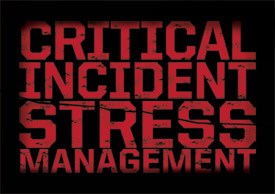When a serious incident happens, people immediately turn to firefighters, EMTs and police for help, but to whom do the first responders turn?
“We have each other and that’s about it,” said Neal Matechuk, president of the local branch of the Professional Firefighters Association.
Now the Saskatchewan Association of Fire Chiefs has come up with a program to help first responders help each other.
“Basically what we’re doing is putting a committee together to assist in the event that a fire department deals with a traumatic event that affects their first responders,” said Harry Wilkins, Yorkton deputy fire chief, prevention and inspections.
They have divided Saskatchewan into 10 zones, each of which will have a committee of firefighters trained in critical incident stress management (CISM), who can deploy to scenes of tragedy.
In fact, Wilkins and Trevor Morrisey, Yorkton’s fire chief, who have already received the training, have already been deployed to La Loche in the mass shooting incident of January 22.
“It definitely did help the people who were involved up there,” Wilkins said. “It was good, I’ve been in this a while and to be able to offer them support was very gratifying for myself.
“These guys may not have had anybody to talk to and Trevor and I obviously being in the fire service as well, kind of know what they’re going through and what to expect and we were received very well.”
Post-Traumatic Stress Syndrome has become a hot public topic in relation to the military, but does not get nearly as much attention when it comes to other professions such as firefighting.
Matechuk points out that the Yorkton Fire Service already conducts critical incident debriefings following major events. The department’s Collective Bargaining Agreement also includes a Employee Family Plan (EFP) which provides access to counseling, but any additional programs are welcomed by the union.
“[The Saskatchewan Professional Firefighters Association] has lobbied the provincial government as well to have PTSD as part of their Occupational Health and Safety compensation package and having the fire chiefs on board as well really helps lots,” he said.
The CISM course will be offered to all firefighters in the province this spring and again in the fall.
The Mental Health Commission of Canada (MHCC) also announced last week a similar collaboration it is undertaking with the Canadian Association of Fire Chiefs (CAFC). The initiative tailored MHCC’s Road to Mental Readiness (R2MR) training program to the specific needs of fire services and will be offered to firefighters across the country.
This week, 30,000 Ontario firefighters will be the first to receive the training.
All of these programs are based on research that recognizes early intervention in the form of psychological first aid goes a long way to preventing long-term mental health issues.
“By investing in early intervention training, we are putting our people in the best position to deliver services to our communities, while maintaining their own mental health,” said Paul Boissonneault, CAFC President and Fire Chief, County of Brant, Ontario.




